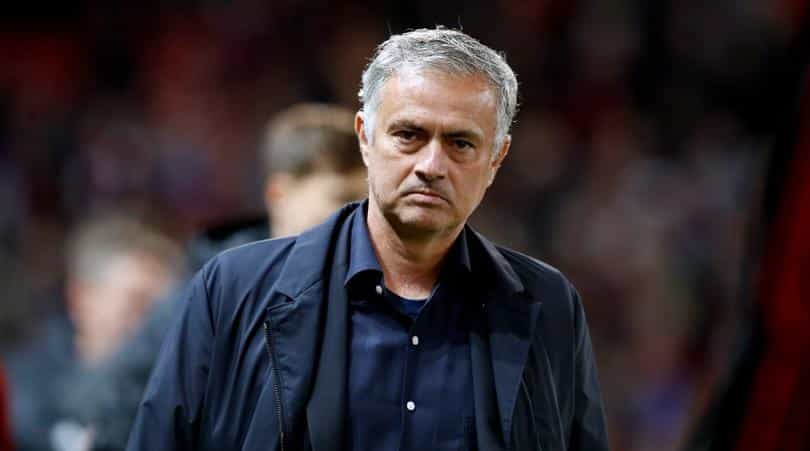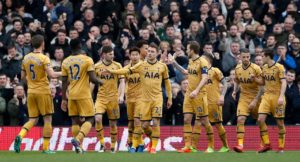The Portuguese desperately needs a positive result at Stamford Bridge on Saturday and the outcome could even shape what happens next for him.
The more things change, the more they stay the same. Two years ago this week, an under-pressure Jose Mourinho took his Manchester United team to face former club Chelsea. United had taken 14 points from their first eight league fixtures and were seventh in the Premier League. Mourinho, supposedly a guarantee of improvement, had not done much improving.
That afternoon, United conceded a goal within 30 seconds and eventually lost 4-0. Mourinho, who was subjected to catcalls and taunts from the home support, suffered his heaviest defeat in all competitions since November 2010. Chelsea had inflicted United’s worst away league loss since 1999.
This season, the Red Devils have taken one fewer point from their opening eight league games and sit once place lower in the table. They have not yet faced Manchester City and Liverpool, as they had done at this stage of the 2016-17 campaign. Now they travel to Stamford Bridge again. A repeat result and Mourinho will surely be pushed onto his sword.
Season-defining period
The result is king. For all the focus on a stirring comeback against Newcastle before the international break, Mourinho’s men went 2-0 down to a team who had not led a match in any competition for five months.
United now face six matches that may define their season and their manager’s future employment. Saturday’s trip to Chelsea is followed by a home Champions League match against Juventus, a home game against Everton, a visit to Bournemouth and the return game in Turin. This mini-season, six games slotted in between October and November’s international breaks, finishes with a trip across town for a Manchester derby. Mind the gap? It’s an ever-widening chasm.
Mourinho is no fool. He knows that a two-week break in November is prime sacking season. Even clubs without firm succession plans – and we can reasonably assume that Ed Woodward does not have one of those – can use that fortnight to conjure an urgent plan of action. Amid that pressure and considering those opponents, wins are the most valuable currency.
But this is about more than results. Back in October 2016, Mourinho was (reasonably) insistent that United’s slow start was a hangover of the Louis van Gaal era. Before the start of the season he told reporters that it would be ‘easier to get 20 new players and start with them from zero’ than provoke a jump in improvement from a Van Gaal-coached squad. The public decrying of the players at his disposal certainly started early.
Playing a bad hand badly
In late-September, a raft of media reports cited sources close to the Portuguese reiterating the point. ‘Mourinho has told friends he feels the players are still hindered by Van Gaal’s rigid style of play,’ wrote David Anderson of the Daily Mirror. ‘Mourinho is becoming increasingly exasperated with his players’ failure to take his ideas on board and abandon Van Gaal’s methods,’ read a Daily Mailpiece.
That excuse seemed valid then; it isn’t now. You can blame your predecessor after two months in the job, but not two years. If Mourinho’s gripes about the club’s hierarchy carry some weight, they don’t absolve him of his own role in this failure. The manager has been dealt a difficult hand, but he’s still played it badly. The alienation of key players, strange tactical moves and the constant flux in team selection all reflect poorly on Mourinho, threatening even to defame his lasting reputation. It’s certainly been noted that multiple United players have performed better for their country during this international break than for their club.
The figures make for miserable reading. Analysis by InfoGol indicates that only Chelsea and Burnley had easier league opponents over their first eight matches than Mourinho’s side. But United only rank fifth for chances created (42 behind Manchester City and 30 behind Liverpool) and sixth for total shots taken. At the back, they have allowed 38 shots on target, bettered by nine clubs including Watford, Everton, Bournemouth, Leicester and Crystal Palace. Attacking badly, defending badly – and now come the tougher opponents.
Is the end nigh?
There’s hope to be found in Mourinho’s big-game record. Since his appointment at Old Trafford, only Arsenal have taken fewer points per game against the big six than United’s 1.38, but since the start of last season that’s improved to 1.73 points per game. That tally is bettered only by Manchester City over the same period.
But crumbs of comfort cannot keep the masses well-fed. And if United supporters are looking to the recent past for their hope, only some meticulous selective vision will provoke anything other than trepidation for Saturday lunchtime.
Victory over Newcastle was not proof of redemption, but comprehensive defeat by Chelsea might well be sufficient evidence of Mourinho’s fading light, on the very stage where it once shone so bright. If that sounds a little unjust, welcome to the world of management at an elite club. The enduring doubt is whether Mourinho will be occupying that world for much longer.








